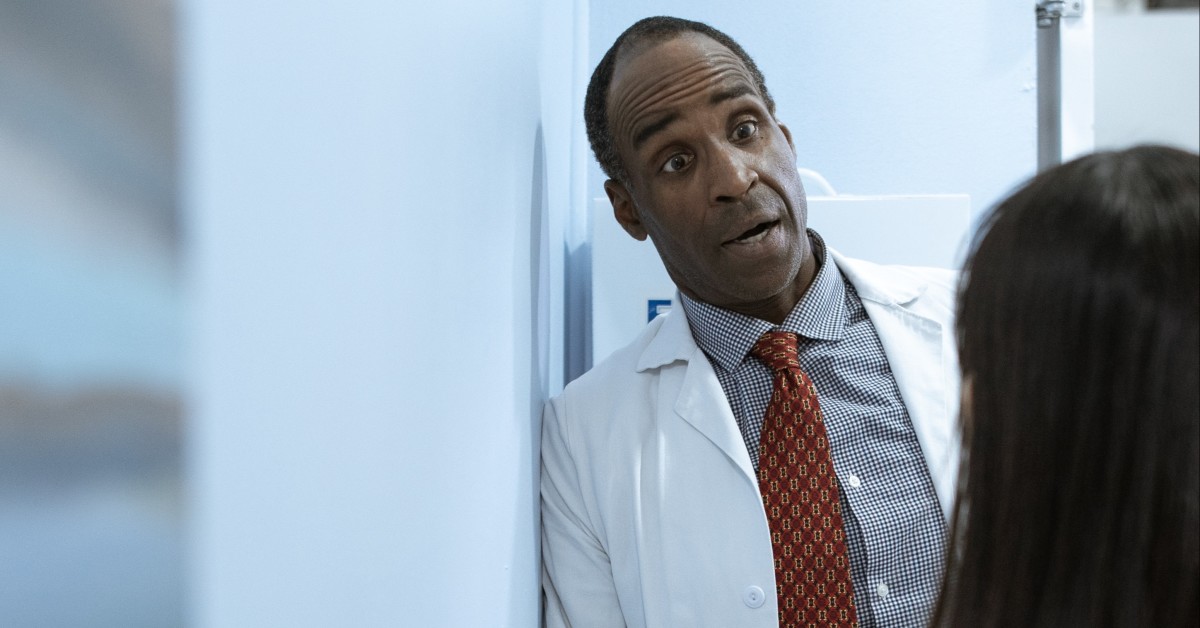
Is a Master's in Computer Science Worth It?
A master's in computer science may take you two years [...]

In the best of times, public relations professionals complement advertising by targeting and cultivating optimal media exposure. Effective public relations works in harmony with paid promotion to reach target audiences through carefully tailored messaging.
During times when it’s not business as usual—say, when you’re in the midst of a prolonged global pandemic and everything from manufacturing and supply chain disruptions to staffing shortages is derailing commerce—spending advertising dollars may feel risky or foolhardy. Public relations professionals can step into the breach. They’ll figure out how to convey vital messaging, enhance a brand’s reputation, and generate goodwill for a company or client without dipping into the ad budget.
Indeed, as Nancy Marshall, CEO and Founder of Marshall Communications explains in Forbes, public relations experts “create brand recognition and establish consumer trust.” A favorable news story about a brand can be much more persuasive than even the most expertly crafted advertisement because earned media “can provide third-party validation, which can go even further than traditional advertising.” PR finds ways to get the media to deliver messages for a company at no cost.
Marshall continues, “I believe that brands have an opportunity right now to create brand recognition for themselves” by highlighting their appreciation for consumers or broader philanthropic efforts in the wake of the pandemic. In short, one person’s crisis is another person’s opportunity.
If you’re looking for opportunities in public relations, this guide can help. It explains what public relations (PR) officers do and where they work, and whether a strategic communication degree, which you can pursue online, is right for you. We’ll review:
Public relations officers oversee a company or client’s public profile and reputation.
According to the US Bureau of Labor Statistics (BLS), public relations specialists “create and maintain a positive public image for the individuals, groups, or organizations they represent.” Public relations includes media releases (e.g., press releases) and social media campaigns designed to influence public perception and awareness.
Public relations officers manage the communications, public relations, and media coverage of their company, institution, or client. PR officers help their organization or client communicate effectively with the public by:
They also help improve or maintain their company or client’s reputation and brand through market research and strategically planned publicity campaigns that measurably shape public opinion. In addition, they evaluate all advertising campaigns, promotional efforts, and sponsorships to ensure they are aligned with their organization’s PR campaigns. Needless to say, public relations officers need to be highly creative and have excellent communication, analytical, and problem-solving skills.
Almost every sector employs public relations officers. Some areas—like politics, retail, finance, and media companies—rely heavily on public relations professionals. Without the trust of both stakeholders and the general public, businesses or campaigns can falter and fail. However, you’ll also find public relations officers at nonprofit organizations, institutions of higher education, and even working for private clients like actors, musicians, or writers.
Public relations or communication officer salaries often depend on the hierarchy of a company or organization. While public relations officers typically manage a large team, an institution’s structure may rank presidents, VPs, or chief officers above them.
For example, a senior management PR role can command an average salary of $233,680, while a mid-level communications officer typically pays closer to $56,000. Why the extraordinarily wide range of salaries? Hierarchical structures in public relations firms create dozens of levels with multiple titles at each level (e.g, account executive, account manager, etc.) and stratified salaries.
Other common PR officer jobs in this field include:
Ryan Duel, the Director of Media Relations and Strategic Communications at St. Lawrence University, answered these questions in an article for the Public Relations Society of America (PRSA). He explained that “strategic communications is the merging of public relations and marketing, and to some degree advertising.”
Duel added that strategic communications is about “communicating purposefully. Organizations make strategic decisions all the time,” and that requires skillful communicators “to examine their communications holistically to create an integrated, multidisciplinary approach” that promotes strategic goals.
A Master of Science in Strategic Communications (or Master of Arts in Strategic Communications) is a graduate-level degree program focusing on the theories and models of mass communication. It aims to teach the analytical processes and strategic practices used to build audience-based organizational communication initiatives used by businesses and other institutions. Students explore communication theory, strategies, and functions in different industries, and how they relate to a mostly digitized world. Key competencies taught include storytelling and digital strategy, quantitative research, campaign planning and evaluation, public relations, social media and podcasts.
Columbia University states that students in its MS in Strategic Communication program will:
Butler University’s MS in Strategic Communication program projects that graduates will develop the ability to formulate and implement a communication strategy, analyze research data, and decipher case studies in relation to their ethics and levels of effectiveness.
Strategic communications master’s programs typically take between 12 and 24 months to complete, though there are part-time programs that take longer.
Columbia University offers both a 16-month and accelerated 12-month format, with or without a graduate-level practicum. American University, in contrast, strongly recommends students limit themselves to two courses each semester, which results in a 20-month program.
Most strategic communications master’s programs require applicants to have a bachelor’s degree in journalism, public affairs, or related field, plus relevant work experience.
Both University of Minnesota and Columbia University specify that applicants should have at least two years of professional experience in advertising, marketing, corporate communications, writing, or journalism to be competitive in their applicant pool.
A typical strategic communications master’s application requires undergraduate transcripts, a minimum undergraduate GPA, a writing sample, a statement of purpose, letters of recommendation, and Test of English as a Foreign Language (TOEFL) scores (for non-native English speakers). Some programs, such as Butler University‘s, require Graduate Record Examination (GRE) or Graduate Management Admission Test (GMAT) scores.
Strategic communications programs focus on learning the foundational and practical applications of communications. They examine the strategy behind developing organizational communication campaigns and how to apply it across multiple organizational departments and channels.
Coursework can focus on research, relevant law, and incorporating visual communications into communication campaigns. Core coursework at Butler University includes:
Most programs culminate with a capstone or practicum project—often resembling a professional-level internship—in the student’s area of choice.
While most strategic communications master’s don’t offer concentrations, a handful of programs allow you to specialize. American University, for one, offers concentrations in advocacy and social impact, digital communications strategies and analytics, corporate communication and reputation management, international strategic communication, and diversity and multicultural communication.
If a program doesn’t offer a specific concentration, a similar focus can be achieved through your choice of electives. For example, Columbia offers elective courses covering crisis communication, effective storytelling, content strategy, and political communication. Butler University delivers a range of coursework in public relation strategies, global communication, and health and risk communication.
Strategic communications master’s programs have grown more ubiquitous in today’s highly connected world. You’ll find both in-person and online degree programs at some of the top universities in the country, including these.
Hailed as “the longest-standing program of its kind in Washington, DC,” AU’s strategic communications master’s program can be taken entirely on campus or online. Its location in the nation’s capital allows students to work with both political and entrepreneurial public relations experts at the top of their fields. As we noted above, American University uniquely offers a wide range of concentration pathways. Students also can connect with the program’s active alumni mentoring network during and after their studies.
Rated the top regional university in the Midwest by US News and World Report, Butler offers students great flexibility with its online format. The curriculum aims to help students immediately apply what they learn in the classroom to their professional lives. Past graduates have gone on to become writers, public relations specialists, and fundraising managers, some of whom make six-figure salaries soon after graduation.
Columbia offers both a full-time and part-time master’s degree as well as an accelerated Executive Master of Science in Strategic Communications. The latter is geared toward experienced working professionals looking to earn an additional degree without interrupting their careers. All students work in the university’s Career Design Lab to transition from the classroom to a more meaningful career path tailored to their career goals. Graduates have gone on to work at companies like American Airlines, Dow Jones, and McCann.
While you don’t necessarily need a strategic communications master’s to enter the public relations field, your starting salary is likely to be significantly higher with a master’s than without one. For example, a communication’s professional with bachelor’s degree can expect to earn an average annual salary of $52,000, while those who have earned their communication master’s command an average salary of approximately $74,000.
However, more importantly, a strategic communications master’s specifically prepares you to become an expert and leader in this field. In a piece for the Public Relations Society of America, Butler University listed several reasons why they believe a strategic communications master’s is essential for anyone aiming to succeed in this field:
So, if you intend to become a leader in public relations, a strategic communications master’s might be an essential step toward achieving your career goals.
Questions or feedback? Email editor@noodle.com

A master's in computer science may take you two years [...]

Healthcare management in the U.S. is exceedingly complex. Medical facilities [...]

Procurement, transport, and storage aren't just for private businesses. Governments [...]

Completing a physician Executive MBA can help clinicians qualify for [...]
Categorized as: Communications & Public Relations, Business & Management